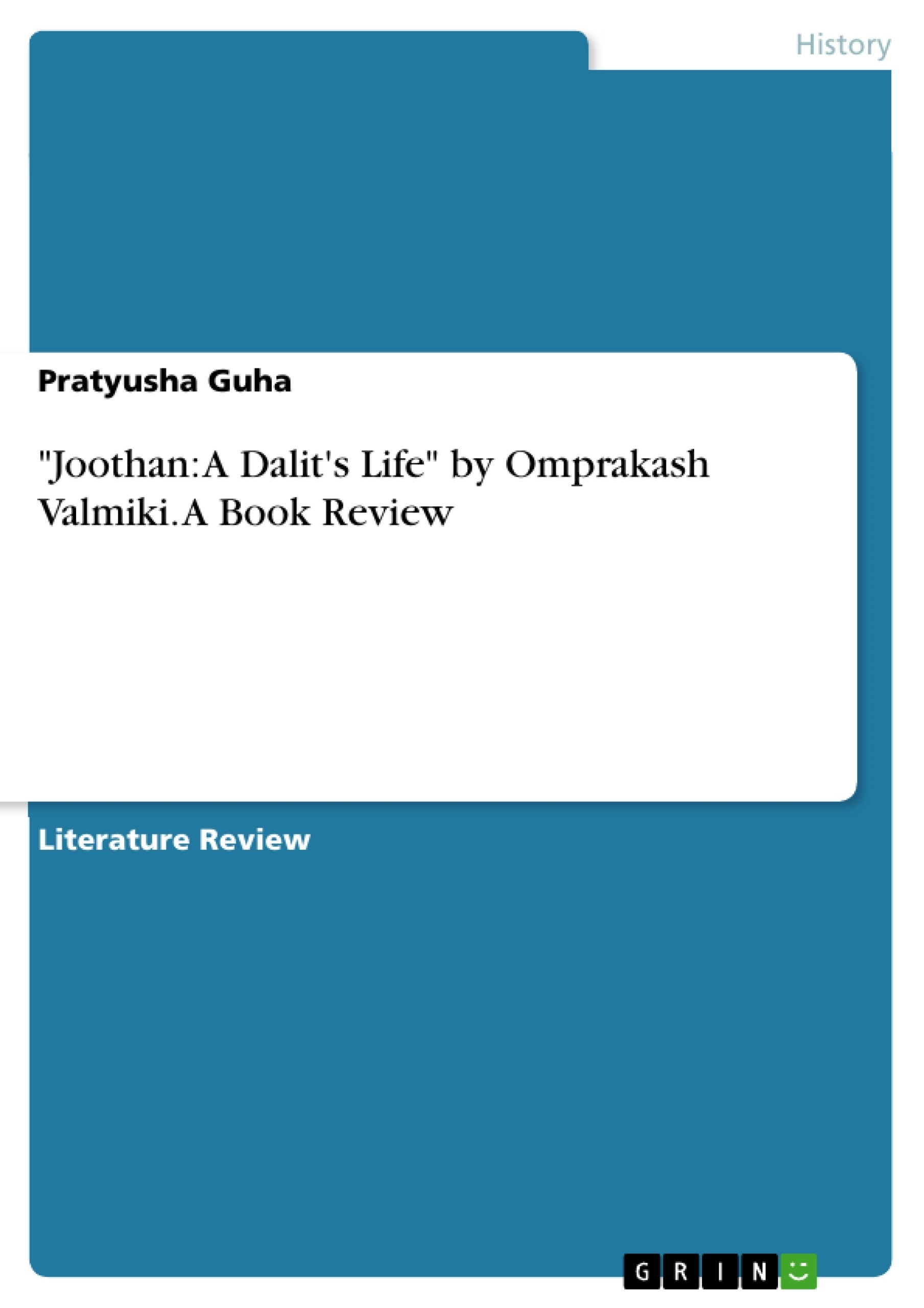The malicious practice of the Caste system has formed an essence of Indian society, without any parallel of the same significance. The Caste system has consolidated a hierarchical division of society in which people are subjected to various privileges or discrimination, owing to their birth in a family belonging to a particular caste. Whether the caste system was a colonial construction or an ancient curse requires a separate debate.
In this paper, an autobiography by Omprakash Valmiki, who was said to be a "Dalit" (an outcaste, belonging to the lowest echelon of society), has been reviewed. In it he has described daily struggles in the life of a low-born. While the world had cheered the process of decolonization and applauded the new notions of humanitarian values and worth of every human life, India, which was soon to be the largest democracy, could hardly break away from the shackles of the loathsome caste system. Valmiki has given us insights into the functioning of Dalit lives in the post independence era, that brought about changes in official documents and legal procedures but without much resonance of them in practical application.
Table of Contents
- DALIT AUTOBIOGRAPHY AND ‘JOOTHAN’
- THE NATURE OF ‘JOOTHAN’
- THE ‘JOOTHAN’ AND THE ‘CHUHRA’
- THE EDUCATION AND THE ‘CHUHRA’
- THE ‘JOOTHAN’ AND THE ‘CHUHRA’
- THE ‘CHUHRA’ AND THE SOCIAL ORDER
- THE ‘CHUHRA’ AND THE ‘JOOTHAN’
- THE ‘JOOTHAN’ AND THE ‘CHUHRA’
- THE ‘CHUHRA’ AND THE ‘JOOTHAN’
Objectives and Key Themes
This book review of “Joothan” by Omprakash Valmiki, a Dalit autobiography, explores the lived experiences of untouchability in India. It aims to illuminate the profound impact of caste discrimination on the life of the author and his community, showcasing the societal and psychological oppression faced by Dalits. The review delves into the struggles of achieving education and social mobility despite entrenched prejudice.
- The enduring legacy of untouchability in India
- The impact of caste discrimination on individual lives and communities
- The challenges faced by Dalits in accessing education and achieving social mobility
- The complex relationship between Dalits and the Hindu social order
- The role of Dalit literature in giving voice to marginalized experiences
Chapter Summaries
The review begins by introducing the concept of Dalit autobiography and highlighting the significance of “Joothan” as a testament to the struggles and realities of Dalit life. It then examines the nature of “Joothan,” showcasing the author's memories of his childhood and the hardships he faced due to his belonging to the “Chuhra” community.
Further, the review explores the author's experience with education and the discriminatory practices he encountered within the school system. It highlights the challenges faced by Dalits in accessing education and the social pressure they faced from upper caste communities.
The review delves into the author's reflections on the caste system and its impact on his family's lives. It examines the concept of “joothan” and its symbolic significance in the context of Dalit oppression.
Finally, the review examines the author's experiences with the broader social order and the limitations he encountered in transcending his caste identity. It explores the challenges faced by educated Dalits in overcoming societal prejudice and achieving social acceptance.
Keywords
Dalit autobiography, untouchability, caste discrimination, social oppression, education, social mobility, Dalit literature, “Joothan,” “Chuhra,” Hindu social order, identity crisis.
- Arbeit zitieren
- Pratyusha Guha (Autor:in), 2016, "Joothan: A Dalit's Life" by Omprakash Valmiki. A Book Review, München, GRIN Verlag, https://www.grin.com/document/337638




